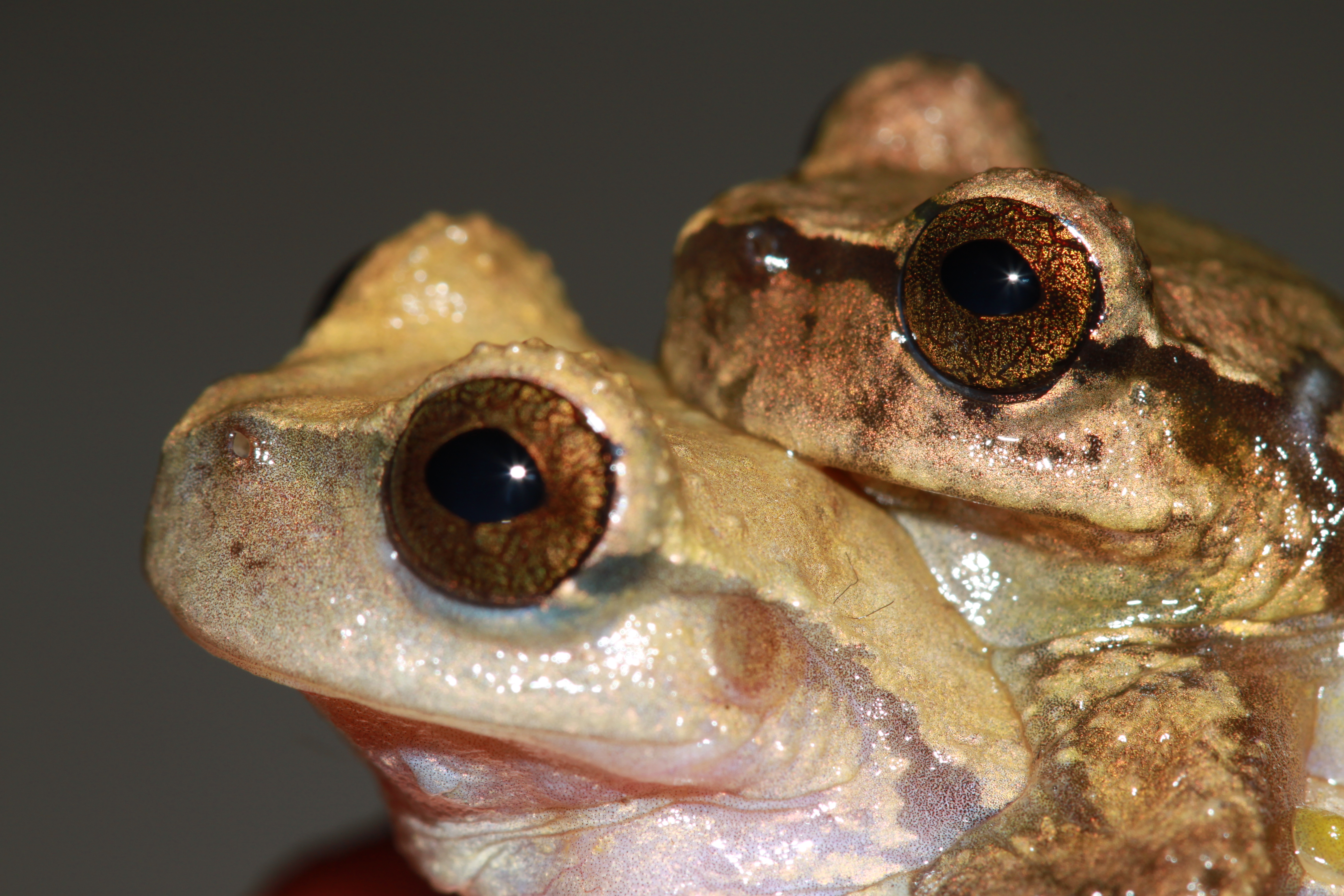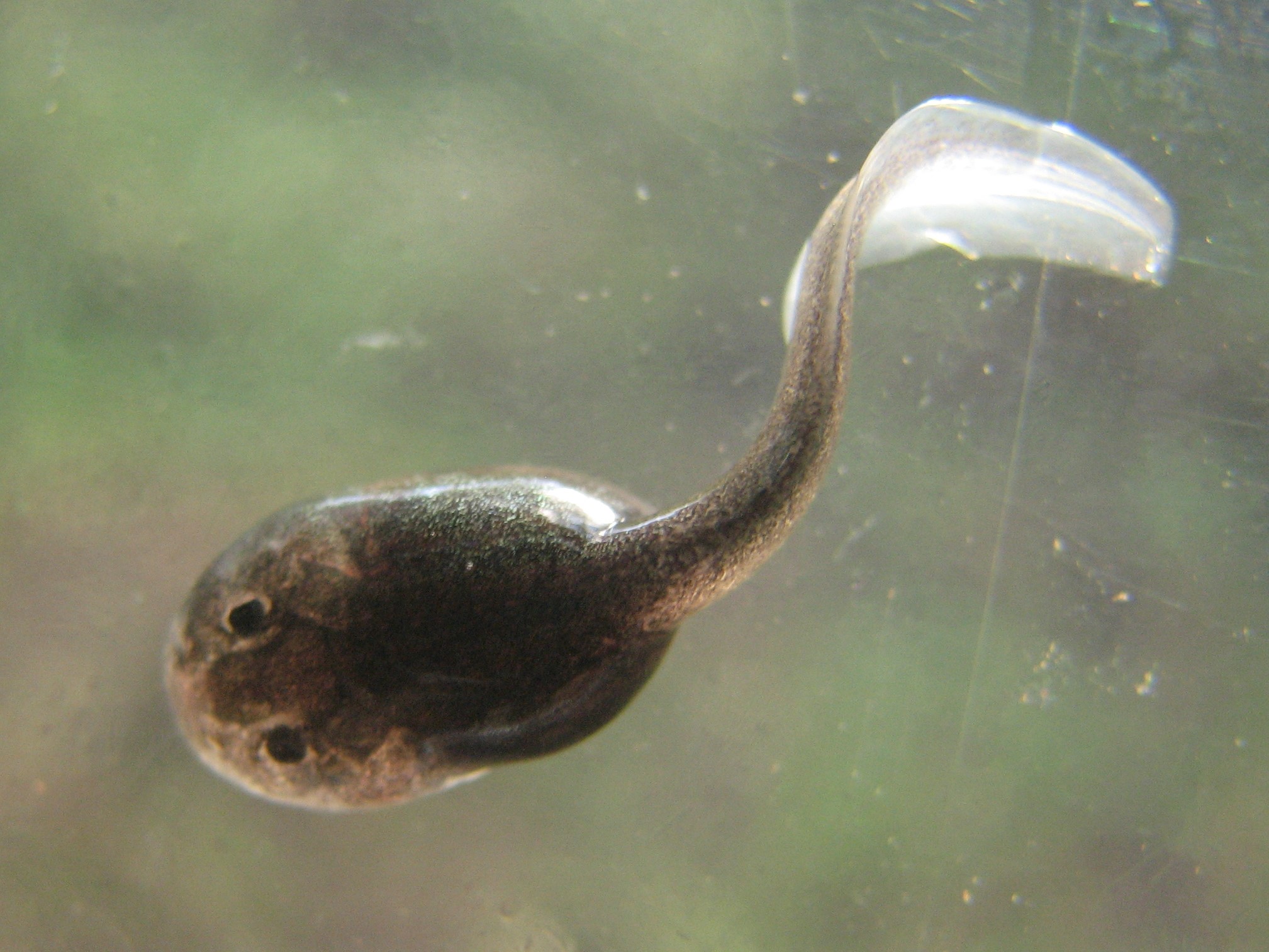Research
Sex pheromones in hylids and poison frogs

Many Neotropical tree frog species exhibit male breeding glands in different regions of their body, which are suggested to contain sex pheromones. In our lab we examine these glands histologically and isolate and identify the pheromonal gland contents using next generation sequencing and proteomics. Pheromone sequence candidates are compared with known sex pheromones and their origin is traced back using phylogenetic methodology. In order to confirm the function of pheromone candidates, behavioural assays are planned in the field, the animal house and/or the zoo Frankfurt.
Alarm pheromones in tadpoles

Many behavioural studies show that tadpoles after being hurt by predators produce alarm pheromones that warn conspecifics, which thereupon change their behaviour (releaser pheromones) or certain morphological features (primer pheromones). While the effects of these pheromones are well known in certain species forming tadpole schools, they remain unstudied in many other species showing other developmental strategies. We aim to investigate tadpole alarm pheromones in an evolutionary and phylogenetic context and to identify the responsible substances.
Parental care in poison frogs
Parental care is surprisingly wide spread and extremely divers among anuran species. In former studies we found that neotropical poison frogs, that transport their tadpoles singly on their backs to small water bodies are able to recognize and avoid chemical cues of conspecific cannibalistic larvae when choosing the perfect habitat for their own offspring. In future studies we aim to broaden our knowledge regarding parental care decisions and the impact of parental care behaviours on offspring survival in poison frogs as well as in Antilles coquis.
Collaborators and Research facilities
Zoo FrankfurtAmphibian Evolution Lab (Vrije Universiteit Brussel, Belgium)
Stefan Lötters (Trier University, Germany)
Kyle Summers (East Carolina University, USA)
Eva Ringler (University of Jyväskylä, Finland)
Bibiana Rojas (University of Veterinary Medicine Vienna, Austria)
Jennifer Stynoski (University of Costa Rica)
Effect-Directed Analysis Lab (Helmholtz-Centre for Environmental Research, Leipzig, Germany)
Raffael Ernst (Senckenberg Natural History Collections Dresden, Germany)
- Aktuelles und Presse
- Pressemitteilungen
- Öffentliche Veranstaltungen
- Uni-Publikationen
- Aktuelles Jahrbuch
- UniReport
- Forschung Frankfurt
- Aktuelle Stellenangebote
- Frankfurter Kinder-Uni
- Internationales
- Outgoings
- Erasmus / LLP
- Goethe Welcome Centre (GWC)
- Refugees / Geflüchtete
- Erasmus +
- Sprachenzentrum oder Fremdsprachen
- Goethe Research Academy for Early Career Researchers
- Forschung
- Research Support
- Forschungsprojekte, Kooperationen, Infrastruktur
- Profilbereich Molecular & Translational Medicine
- Profilbereich Structure & Dynamics of Life
- Profilbereich Space, Time & Matter
- Profilbereich Sustainability & Biodiversity
- Profilbereich Orders & Transformations
- Profilbereich Universality & Diversity




